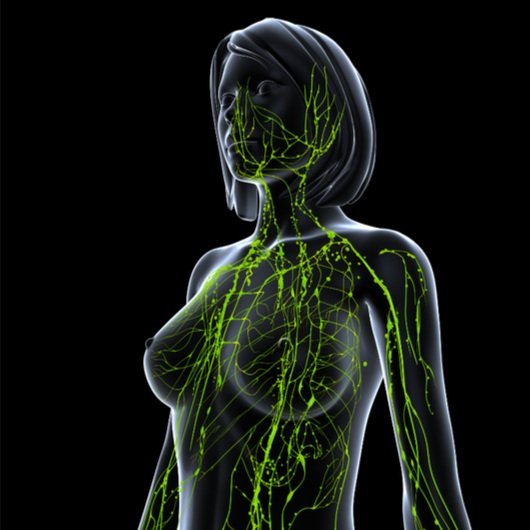What is Lymph and the Lymphatic System?
Written by Madison Woods, an undergraduate student at UNCW and a Public Health Intern at Going Beyond the Pink.
*Disclaimer: This post contains affiliate links.
What is the Lymphatic System?
The lymphatic system is a web of organs, nodes, ducts and vessels that all produce and move lymph from our tissues to the bloodstream. The lymphatic system is sometimes referred to as the secondary circulatory system since it runs parallel to our veins and empties into them. Even though lymphatic vessels, which are really similar to blood vessels, are all throughout our body there are specific organs associated with this system including: bone marrow, spleen, thymus gland, lymph nodes and lymphatic vessels. This system also contains a large amount of our body’s white blood cells, which are essential in fighting infections and foreign cells/antibodies. Some other functions the lymphatic system performs include maintaining the fluid balance within our bodies, facilitates the absorption of dietary fats from our gastrointestinal tract to the bloodstream for storage or to be metabolized, and it enhances and facilitates our immune system function.
What is Lymph?
Lymph is a clear fluid that flows through the lymphatic system and is composed of white blood cells. White blood cells are the cells that work to attack bacteria and anything foreign in the blood and tissues- so very important in immune defense. Lymphocytes are a specific type of immune cell found within these white blood cells and there are two main types of lymphocytes that are important for immune function. We have B lymphocytes that produce antibodies and T lymphocytes that act to kill tumor cells while helping to control immune responses. Lymph is also composed of a fluid called chyle that is essentially proteins and fats from our intestines.
Why is Lymph Important/What is its Function?
Lymph helps keep the cells of our bodies moist
Lymph transports oxygen, hormones and nutrients all around the body while removing waste from the cells
Lymph helps maintain the composition of tissue fluid
Lymph transports antibodies and lymphocytes to the blood
Lymphatic System and Breast Cancer
Understanding the role that the lymphatic system can play with cancer is so important and can be life saving. Lymph nodes are what filter the lymph fluid as it flows through our body and these nodes are found at specific points in our bodies like the armpit, collarbone and thyroid area. While the lymphatic circulation in the breast tissue helps manage fluid balance and filter out harmful substances, it can also spread cancerous cells through the body. This isn’t specific to breast cancer, this can happen with any sort of cancer where the cells can break off the tumor and become stuck in a near lymph node.
Another important aspect with breast cancer and the lymphatic that is helpful to understand is how treatment for cancer impacts your lymphatic system and those lymph nodes near the breasts. When a patient undergoes surgery for breast cancer, it's quite common that the lymph nodes are removed. This causes a disruption in the flow of the system and can lead to edema, or swelling. This is what is known as lymphedema, the swelling of a body part due to an accumulation of lymphatic fluid. In breast cancer patients, this is commonly seen in the arm(s) on the same side of the affected breast. Fortunately, this is treatable and has many management techniques.
For more resources, check these out!
National Cancer Institute Lymph System
Composition and Function of Lymph
